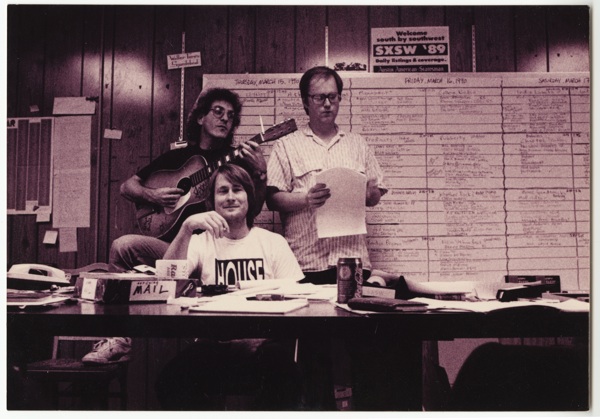Videos by American Songwriter
On August 22, AEG, the second largest concert promoter in the U.S., announced they would start moving their concert and event ticketing business away from Ticketmaster and partnering with a company called Outbox in a new ticketing venture called Axs.
Since Ticketmaster’s merger with the country’s biggest promoter Live Nation last year, there’s been a growing question both over how AEG would react to their ticketing provider joining hands with their top competitor – and how the merger would affect the ticketing and live entertainment space at large.
Tawn Albright, who headed up Corporate Development for Ticketmaster in L.A. for several years but now lives in Nashville, says AEG’s move is about who controls information and data.
“AEG and Outbox are saying to the venue – you control the data,” says Albright. “You can control the direct communication to the consumers and then monetize the consumers because they want to have a direct relationship with you.”
Fred Rosen, who led Ticketmaster from 1982 until 1998, recently joined Outbox to help re-think and disrupt the ticketing business that he helped create. If AEG hadn’t already decided that being in the ticketing business with their competitor was not all that appealing, Rosen surely helped show the way out.
(AEG did not return calls requesting a comment for this article.)
While AEG will give more ticketing power to promoters, Ticketmaster’s system has often been thought of as an aggregation model. They centralize all the tickets in one place: Ticketmaster.com. When a fan buys a ticket, they go into Ticketmaster’s massive email database, and are then targeted to buy more tickets for other shows.
The problem, though, says Albright, is that the venue from whom the fan originally bought a ticket might not benefit when Ticketmaster uses the fan’s data to market another show at another venue. The counter argument, of course, is that with Ticketmaster’s aggregation model venues have access to a bigger pool of users. “Who’s data is it?” asks Albright. “If you buy a ticket from a venue, should that data not be used to market for [another venue]?”
Kevin Hartz, co-founder and CEO of Eventbrite, a San Francisco-based ticketing company, has developed a model for promoters that gives them the choice of controling their own ticketing data but also aggregates tickets and markets to a wide user base.”
“I feel that if you look at internet businesses, the movement of commerce is towards centralization and breadth of choice to consumers,” says Hartz. “So fragmenting that makes it more difficult than centralizing it. That has been a key lesson in e-commerce 101. The biggest strength comes from aggregating inventory rather than fragmenting it. Amazon, eBay speak to that.”
But other so-called “white label” services that give promoters control over data have been gaining ground in recent years. eTix, which Albright’s company Rockhouse Partners currently works with, has 4,000 clients worldwide, and offers both ticketing as well as services like eTix Connect, which provides venues with marketing support.
Ticketfly, another notable white label ticketing platform, serves festivals and small and mid-sized clubs all over the country. The co-founders Andrew Dreskin and Dan Teree have close ties with both AEG and Ticketmaster. (Dreskin’s first company Ticketweb was acquired by Ticketmaster in 2000.)
Teree says AEG’s move is also a face off with Live Nation.
“There’s a lot of similarities between what Live Nation and Ticketmaster are doing through their merger and what AEG is doing,” he says. “Now we have the number one and number two largest promoters in the United States buying or owning their own ticketing system. And I think they both suffer from the same issues of conflicting with the interests of the independent music promoters or independent venue owner.”
In time, AEG will also hope to sell their ticketing service to Ticketmaster’s clients, becoming competitive on the ticketing front with all ticketing vendors, from eTix and Eventbrite to Ticketfly.
Hartz says having more players in the ticketing game could lead to better sport. “Competition is always good. We haven’t seen a lot of players in the ticketing space. We haven’t seen a great deal of innovation.”
But Albright worries that venue owners and promoters could be wary of too much innovation.
“The reality is when you get out in the world and talk to venues, they’re not going to be overly sophisticated on things,” he says. “They’ve got so many things they need to do. They need support.”
But whether venue owners will go with Ticketmaster’s deep reach, AEG’s new promise, or the white label solutions that are adopting new technologies the fastest, at the end of the day there’s only one thing that matters.
As Teree says, “Clients, promoters, venue owners want a system, platform, and service that sells tickets.”
Correction: This article originally incorrectly stated that Eventbrite’s Kevin Hartz did not see an industry trend toward giving promoters and venue owners more control over ticketing.














Leave a Reply
Only members can comment. Become a member. Already a member? Log in.